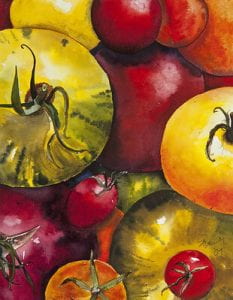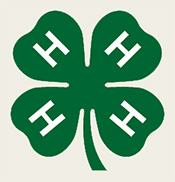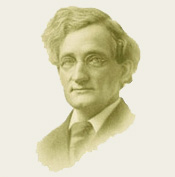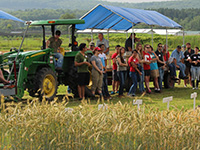Mission
We prepare volunteers to be peer educators who build relationships with community audiences to
integrate local experience and research based knowledge in planning for and initiating steps to
manage gardens, lawns, and landscapes with an emphasis on food security and environmental
stewardship.
Interested in being a Master Gardener in NY? Contact your local county office. Not every CCE county office in New York has the resources to support a program.
Monthly Sustainable Landscapes Lunch & Learn Series:
Third Wednesday of the Month, from 12:00 pm – 1:00 pm
- To register as a CCE educator or volunteer, contact: alm443@cornell.edu
Past Master Gardener Volunteer Advanced Training Webinars Featured below:
- Simple Video Apps for MGV and S2S
- Moodle Course Teacher Coaching
- CCE MGV Support Amidst COVID-19
- Recording – DINA Extension Work – Horticulture Programs
- Site Visits for MGV
- MGV Program Tracking & Evaluation
- Horticulture Diagnostics Hotlines – Best Practices
- Orientation to Seed to Supper
- Seed to Supper – Annual Program Celebration, Evaluation Results & What’s Next
- Getting Started with Seed to Supper – Collective Impact Evaluation Results
- Getting Started with Seed to Supper – Beginning Hands-On Gardening Activity Guides
- Getting Started with Seed to Supper – Equity for Garden-Based Learning
- Getting Started with Seed to Supper – Partnership Development
- Getting Started with Seed to Supper – Telling our Stories – Evaluation
- Garden Like a Forest: Urban Forests & Environmental Justice
- Garden Like a Forest: Growing Fruit in the Garden Landscape
- Garden Like a Forest: Backyard Mushroom Cultivation
- Working with Nature: Native Plants for New York Shorelines
- Gypsy Moth Webinar
- Sustainable Lawns for Spring
- The Tick Blitz Project
- Gardening in a Warming World: Youth Grow!
- Climate & Water-Wise Plant Selection
- Rain Gardens – A How-To for Homeowners
- Biocontrol
- Community Food Systems Best Practices
- Safe, Sustainable Plant Sales Online!
- Web Soil Survey 101
- Permaculture Design 101: Polycultures to Agroforestry Practices
- Growing Unusual Fruits
- Getting the Most out of your ‘H’ Soil Test Report
- Healthy Soils, Healthy Communities: Resources and Best Practices for Healthy Gardening
- SOI3L: Online Information, Investigation and Innovation Laboratory
Ag In-Service Recorded Presentations:
- Climate Adaptation & Ecological Gardening Techniques
- Cultivating Belonging in the Master Gardener Program
- Horticulture Diagnostic Updates
- Invasive Species to Know – Threats to Food and Forests
- Growing the Next Generation of Gardeners
- The Cornell Turf Team: Lawn & Water Quality Initiatives
- Climate Change & Sustainable Landscapes Education Projects
- Using Soil Test Results to Develop Sound Fertilizer Programs
- Steady & Focused: Efforts to Promote Racial Justice in Oregon’s Master Gardener Program
Other Horticulture Related Presentations of Interest
- Pollinator Support
- Planting Habitat for Beneficial Insects
- Conserve Native Plants – Ash Trees
- Common Diseases in the Garden
- Nuisance Wildlife
- Trees for Every Site: Principles for Good Selection
- Make Your Lawn an Environmental Asset
- COVID-19 Turf Webinar Series
The Extension Master Gardener program in New York State prepares individuals for volunteer roles in garden-based learning activities that support the educational mission of Cornell Cooperative Extension(CCE) and the CCE Master Gardener Program Mission, Vision and Values. All CCE Master Gardener Volunteer (MGV) program opportunities are managed by the County CCE office who locally recruit volunteers as needed through an application process. Active Cornell Cooperative Extension Master Gardener Volunteers commit a minimum number of hours per year in support of county program community activities.
Why be a Cornell Cooperative Extension Master Gardener Volunteer? The documented benefits of gardening are numerous and include: lifelong learning, environmental/scientific literacy, a sense of accomplishment, physical exercise, improved health, stress relief, physical rehabilitation, psychological rehabilitation, economic success, enhanced social relationships, community building and direct access to nutritious fresh food. Garden-based learning can serve as a catalyst for addressing food security and hunger; climate change; childhood obesity and nutrition; food safety; and youth, family and community development. The widespread appeal of gardening provides opportunity to use gardens to connect with diverse audiences.
Find more on the Benefits of Garden Based Learning and Research that Supports Our Work.
Looking to advance your gardening knowledge without a volunteer commitment? Explore opportunities with…
- Cornell Horticulture Distance Learning
- Learning at Cornell Botanic Garden
- Cornell Cooperative Extension County Offices
- National Extension Master Gardener Program – State Programs
- Landscapes for Life
Horticulture Update Newsletters
- Please visit this page to sign up for our newsletter and see all past issues of the Horticulture Update:
- Horticulture Update Archives
The Garden-Based Learning Library:
When you become an Extension Master Gardener Volunteer, your training will include research-based resources and content from Cornell University in a curriculum that was recently updated in 2019. The outline of that Core Preparation is outlined below:











